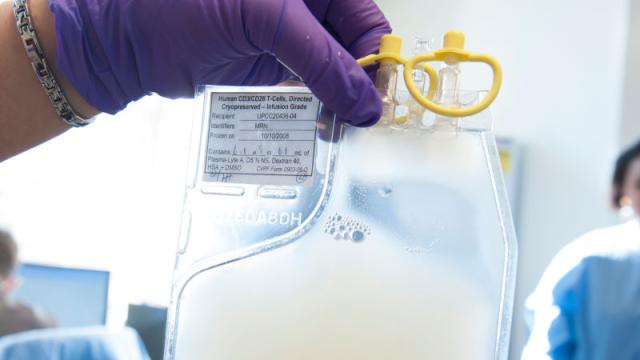In the US, the first planned clinical trials of CRISPR gene editing in people are about to kick off. China, meanwhile, has been racing ahead, having already used the gene-altering tool to change the DNA of dozens of people in several clinical trials.
Image: Penn Medicine
The Wall Street Journal reports that so far in China, at least 86 people have had their genes edited, and there is evidence of at least 11 Chinese clinical trials using CRISPR. One of those trials, the WSJ found, began a year earlier than previously reported, putting the start of the first Chinese CRISPR trial in 2015.
China’s rapid advancement is the result of more relaxed regulations, and a willingness to forge ahead with cutting-edge research despite potential unknowns and safety concerns, which are significant. One recent paper, for example, suggested that CRISPR could trigger an immune response in a majority of patients, which could render potential treatments either ineffective or dangerous. China’s rapid-fire approach has set off a biomedical duel between the US and China, and sparked concerns among Western scientists that the Chinese trials have been irresponsibly premature.
In China’s 2015 CRISPR trial, the WSJ reports, 36 patients with cancers of the kidney, lung, liver and throat had cells removed from their bodies, altered with CRISPR, and then infused back into their bodies to fight the cancer. Other Chinese trials have sought to use CRISPR to treat HIV, esophageal cancer and leukaemia. A trial slated for this year in China will enrol 16 patients. Meanwhile, the first human CRISPR trial in the US, at University of Pennsylvania, will enrol just 18 people, and is designed primarily to test whether CRISPR is safe.
Chinese scientists may end up being the first to cure cancer using CRISPR, but it’s unclear what repercussions may come with rushing through these early safety trials.
[WSJ]
